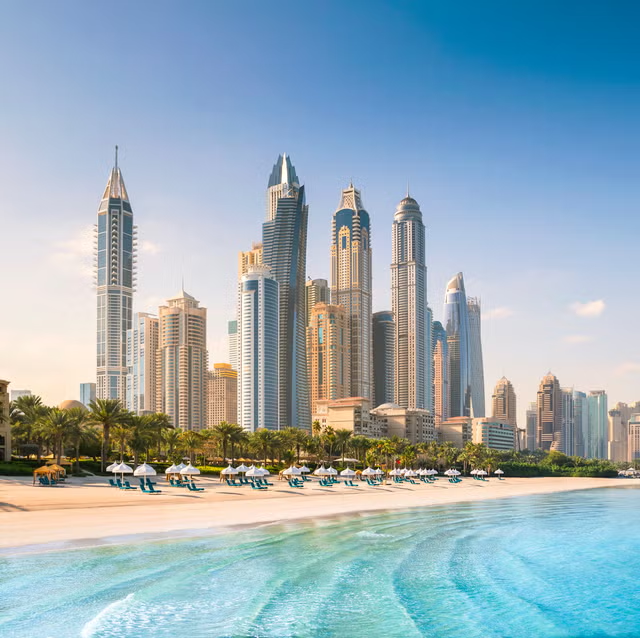
Dubai property prices have surged an incredible 68% over the last six years, making headlines across the globe. The city’s glittering skyline, luxury developments, and booming demand have turned Dubai into one of the hottest real estate markets in the world.
But the big question many are asking now is: Can this growth continue, or is Dubai heading toward another property bust?
In this article, we’ll break down the numbers, look at what’s fueling the growth, examine the risks, and explore what might happen next in Dubai’s fascinating real estate story.
Over the past six years, Dubai’s property market has been on a rollercoaster. After periods of stagnation and correction, prices have now shot up by nearly 70%.
These gains have put Dubai back in the spotlight as one of the world’s fastest-growing property markets.
Several powerful factors are pushing Dubai property prices higher:
Dubai continues to attract professionals, entrepreneurs, and investors from around the world. A growing population fuels demand for both rentals and ownership.
Global investors, especially from Europe, Asia, and the Middle East, see Dubai as a safe haven. Wealthy buyers are flocking to luxury villas and penthouses.
With no income tax and a strategic global location, Dubai is a magnet for companies and individuals looking for a strong base in the region.
Projects like Palm Jumeirah, Bluewaters Island, and Dubai Creek Harbour make the city attractive to buyers looking for modern, world-class developments.
In times of economic and political turbulence, Dubai stands out as stable, secure, and open to international capital.
While growth is impressive, some analysts warn that the market could be overheating. Here are the warning signs:
Dubai has experienced property bubbles before, most notably in 2008 and again in the mid-2010s. The question is whether history could repeat itself.
It’s important to note that today’s market is not identical to the past. Dubai has learned lessons from earlier cycles.
The Dubai Land Department and Real Estate Regulatory Authority (RERA) have introduced stricter rules to prevent speculative flipping.
More of today’s buyers are end-users or long-term investors rather than short-term speculators.
Dubai’s reputation as a safe haven has grown, with more international buyers diversifying into the UAE.
Dubai’s economy has matured beyond just real estate, with strong sectors in tourism, logistics, trade, and technology.
These factors suggest that while risks exist, the market may be more resilient than in the past.

The rise in Dubai property prices has different effects on various groups.
Some areas have outpaced the overall market and seen record-breaking sales.
Luxury villas and penthouses have nearly doubled in price. High demand from ultra-wealthy buyers keeps pushing values up.
Apartments near Burj Khalifa and Dubai Mall remain a magnet for both investors and residents.
New luxury communities are seeing rising demand for villas.
Home to some of the most expensive land plots in Dubai, with record villa sales.
These hotspots show where global wealth is flowing and where the biggest returns are being seen.
While the outlook remains positive, it’s important to look at what could derail growth.
Dubai has faced these challenges before, so the possibility of a slowdown cannot be ignored.
Experts remain divided.
For investors considering Dubai, here are some takeaways:
When comparing Dubai with global hubs, the city looks both exciting and affordable.
This comparison shows why Dubai continues to attract global investors despite concerns about overheating.
The fact that Dubai property prices are up 68% in just six years is both impressive and concerning. On one hand, it highlights Dubai’s transformation into a global luxury hub. On the other, it raises the question of whether the market can sustain this pace without correction.
For now, demand remains strong, regulations are tighter than before, and Dubai continues to attract wealth from around the world. That makes a sharp crash less likely than in previous cycles.
Still, investors should remain cautious, focus on prime locations, and think long-term. Dubai’s story is one of growth, ambition, and resilience—and whether the market cools or keeps soaring, it will remain one of the most fascinating real estate markets in the world.
Follow us on – Instagram
Read More:-Fujairah Coastal Properties See Sudden Global Interest
